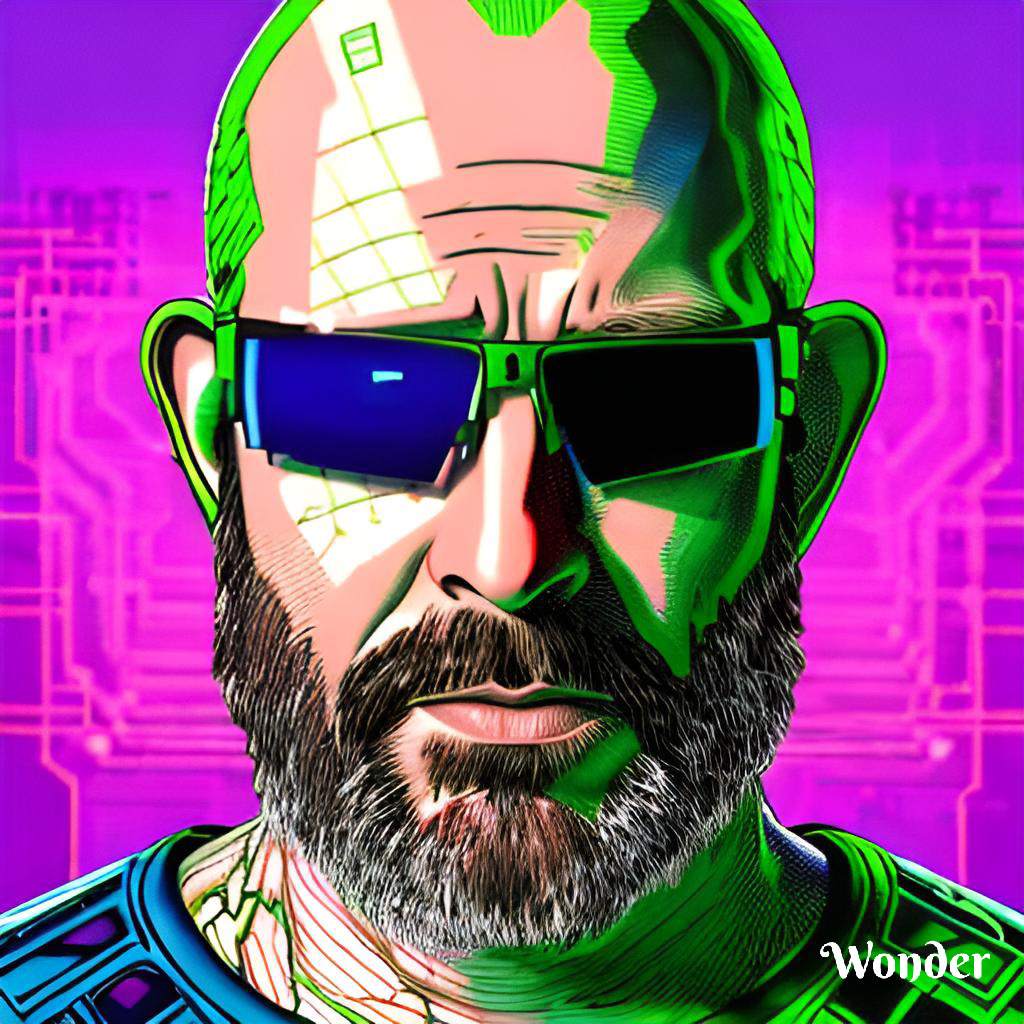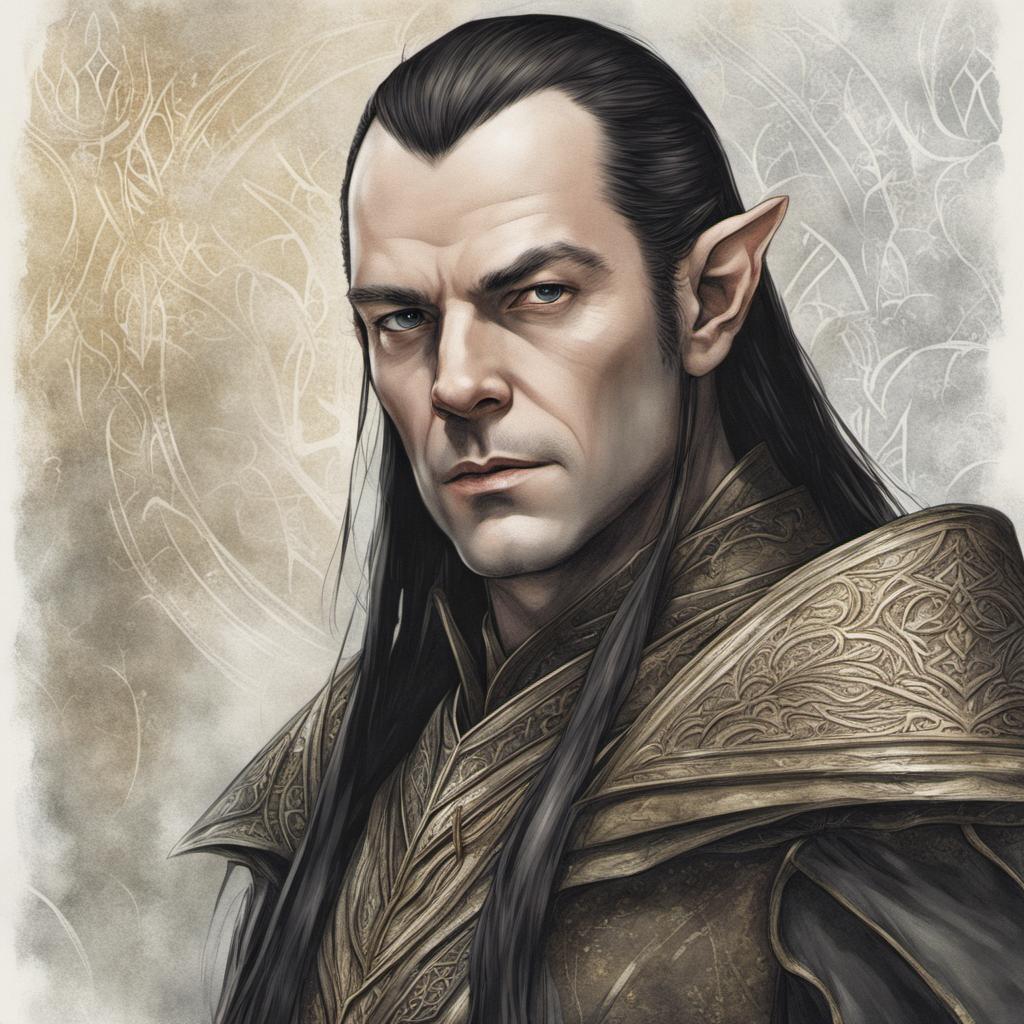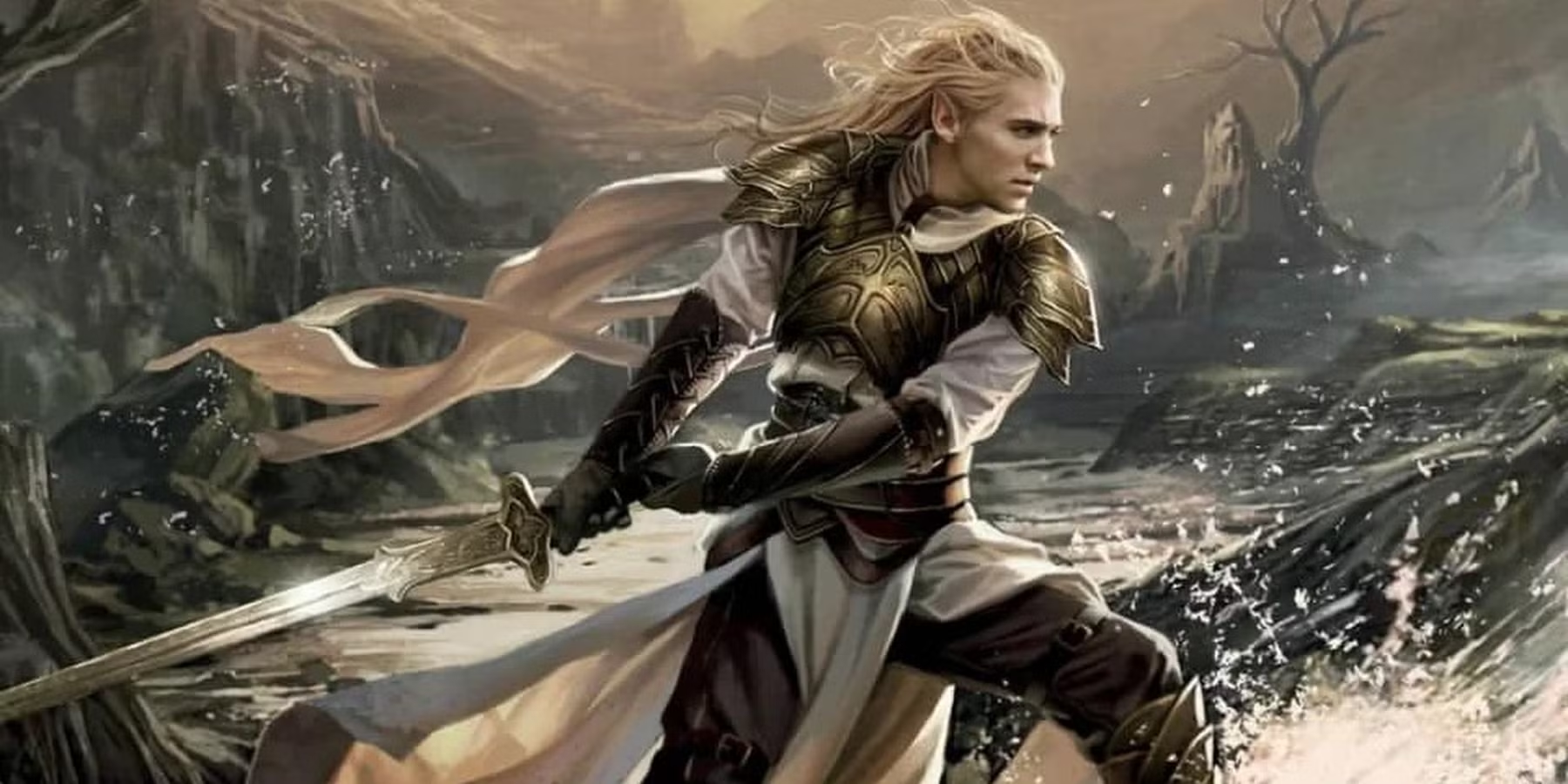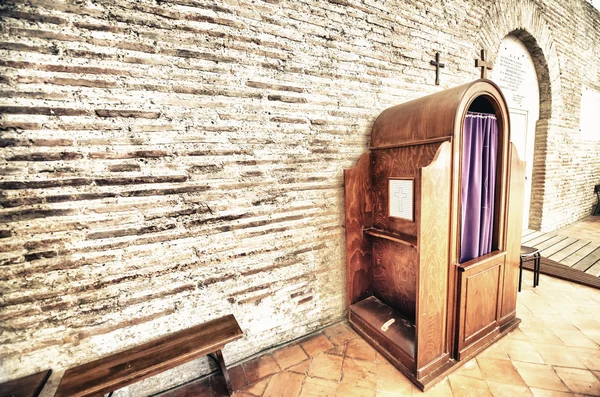Table of Contents
Birth and Early Life
In the Year of the Trees 1169, the union of Finwë and Míriel Þerindë produced a child of such exceptional spirit and strength that his birth altered the course of Elven history. Míriel, whose name means “the Jewel-woman,” gave all her vitality to bring her son into the world and, as a result, could no longer remain among the living. Choosing rest in Lórien, she became the first Elf to willingly surrender life, leaving Finwë devastated. Fëanor, their only child, was marked from the beginning by this sacrifice—a solitary start that would shape his pride, passion, and pursuit of greatness.
Without the guidance and presence of his mother, Fëanor developed a fiercely self-reliant nature that distanced him even from his father. Finwë’s grief eventually led him to remarry Indis of the Vanyar, which introduced half-siblings into Fëanor’s life—an act that deepened his isolation and kindled early resentment. While still young, his brilliance emerged clearly, but so too did a defiant will that sought no equal. Raised in the shadow of a unique birth, he internalized his mother’s sacrifice as both a burden and a challenge. The absence of maternal affection and the exclusivity of his origin became silent forces that pushed Fëanor toward his future of unrivaled ambition.
Mastery in Craftsmanship
From an early age, an unmatched brilliance in craftsmanship set one Noldorin prince apart. He invented the Tengwar script, a writing system so elegant and adaptable that it became the standard across Elvenkind for recording language, poetry, and lore. His mind reached beyond letters into tools of vision and knowledge; the palantíri, or “far-seeing stones,” were among his early inventions, capable of linking minds across great distances. Each creation reflected not just technical precision but artistic soul. These works earned Fëanor admiration even among the Valar, solidifying his reputation as the greatest craftsman the Elves—or Arda itself—had ever known.
His pinnacle achievement, however, surpassed all previous marvels. Fëanor forged the Silmarils—three radiant gems that held within them the unmarred light of Telperion and Laurelin, the Two Trees of Valinor. Unlike ordinary jewels, these were infused with spiritual light, impervious to decay and sanctified by Varda herself. None could touch them without suffering, save those of pure intention. Their brilliance mesmerized even the Valar, and their creation marked a turning point in Elven history. No other craftsman dared attempt to imitate them, for it was understood that such greatness had been reached only once—by the singular genius of Fëanor.
Ties of Blood and Fire
The union between the Elven craftsman and Nerdanel, daughter of the smith Mahtan, brought together two great lineages of creativity and strength. Mahtan had studied under the Vala Aulë, and Nerdanel inherited both wisdom and patience. Their marriage produced seven sons: Maedhros the tall, Maglor the minstrel, Celegorm the hunter, Caranthir the dark, Curufin the crafty, and the twins Amrod and Amras. Though a formidable legacy in name and talent, the family dynamic grew strained over time. Fëanor’s intensity often clashed with Nerdanel’s more thoughtful nature, leading to distance between them and ultimately her refusal to follow him on his later, more turbulent path.
His relationship with his extended family was marked by tension and pride. After the death of his mother Míriel, his father Finwë remarried Indis of the Vanyar, producing half-brothers Fingolfin and Finarfin. This second marriage was a deep wound; Fëanor viewed it as a betrayal of his mother’s memory and never accepted Indis or her children. His resentment grew into open hostility, clouding any chance of kinship. Even in public matters, he distrusted their intentions and questioned their legitimacy. Fëanor’s inability to reconcile with his father’s second family helped fracture unity among the Noldor at a critical time.
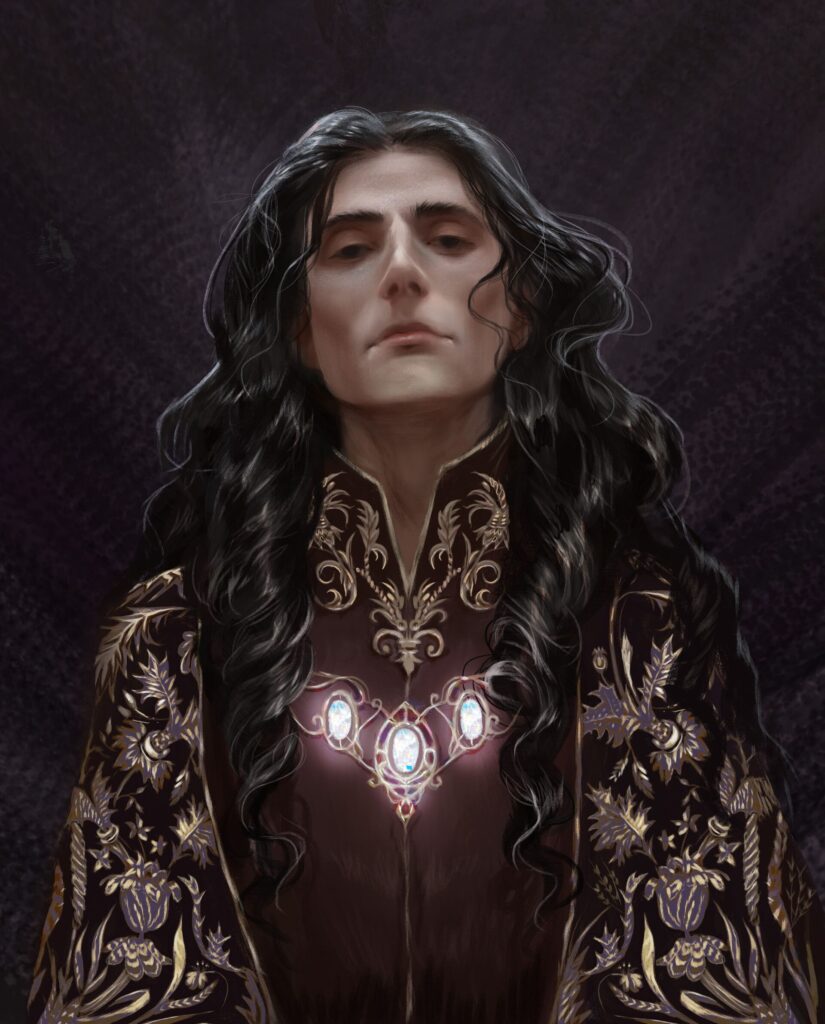
The Creation of the Silmarils
The Silmarils were unlike any creation the world had seen—three radiant jewels that held within them the mingled light of Telperion and Laurelin, the Two Trees of Valinor. Their brilliance was not only physical but spiritual, capturing the last untainted glow of the Trees before darkness fell. Varda, Queen of the Stars, blessed the jewels so that no mortal or corrupted being could touch them without pain or ruin. This act elevated the Silmarils beyond mere artistry; they became sacred relics. Only the one who shaped them could fully understand their essence, and that one was Fëanor, whose soul had been poured into every facet.
Each Silmaril was said to shine with a living inner light, visible even in total darkness. Their purity gave hope to many and stirred longing in others, making them objects of both reverence and obsession. Elves marveled at them, and even the Valar were awed by their radiance. But this sanctity also brought danger. The jewels’ beauty could not be reproduced or shared without great loss, creating tension between their creator and those who wished to see their light used for healing or remembrance. Fëanor, fiercely protective of them, saw the Silmarils not only as masterpieces but as extensions of his very identity.
Shadows Woven in Lies
Melkor, once counted among the greatest of the Valar, allowed envy to twist his purpose, directing his malice toward the brightest flame of the Noldor. Pretending friendship, he subtly planted seeds of mistrust, whispering that the Valar sought to claim what had been labored for in brilliance and solitude. These lies resonated deeply, especially when aimed at the Silmarils, stirring unrest in the heart of their creator. Tensions escalated until a public confrontation occurred between brothers, and Fëanor, in a blaze of fury, threatened Fingolfin with violence. This act forced the Valar to intervene, leading to Fëanor’s exile to the northern stronghold of Formenos.
The deceit of Melkor reached its climax during this time of separation. With cunning precision, he allied himself with Ungoliant, a monstrous spirit in spider form who fed on light and life. Together, they launched an assault on the Two Trees of Valinor, draining them of their radiance and plunging the Blessed Realm into blackness. The destruction was irreversible, and with it vanished the last pure light before the making of the sun and moon. In the aftermath, Melkor escaped into the world with his accomplice, while Fëanor, still exiled, received word of the devastation—an act that confirmed every suspicion planted by Melkor.
The Theft of the Silmarils and the Oath
Amid the confusion and sorrow that followed the destruction of the Two Trees, Melkor struck a final, devastating blow. He entered Formenos, where the Silmarils were guarded, and murdered Finwë, the High King of the Noldor. With no one left to protect the jewels, Melkor seized them and fled to Middle-earth. The theft of the Silmarils was more than a loss of treasure—it was a violation of art, spirit, and bloodline. In the wake of this betrayal, Fëanor gave Melkor a new name: Morgoth, meaning “Black Enemy,” a title that captured both hatred and truth in a single curse born of grief.
Ravaged by mourning and fury, he gathered his seven sons and spoke words that would echo for generations. Together, they swore a binding oath, vowing to reclaim the Silmarils at any cost. This pledge was absolute, promising enmity against any creature—Valar, Elf, Man, or Maia—who kept the jewels from them. The power of their words created an unbreakable bond, one driven not by reason but by obsession. The Oath consumed them, transforming righteous grief into blind vengeance. Fëanor, once a master of creation, now became the architect of a curse that would lead his family and kin into tragedy.

Blood on the Shore of Swans
Driven by a relentless need to reclaim the Silmarils, the Noldor began their departure from Valinor, defying the command of the Valar. Their leader sought passage to Middle-earth by sea and turned to the Teleri, the seafaring Elves of Alqualondë, for ships. When the Teleri refused, unwilling to aid a rebellion they did not support, the situation escalated into violence. A brutal battle erupted in the peaceful harbor, resulting in the deaths of many Teleri at the hands of their Noldorin kin. Among the fallen were mariners, artists, and families—Elves slain not by enemy creatures, but by those who once shared their immortal bond.
This horrific event became known as the Kinslaying at Alqualondë and shattered the sanctity of Elven unity. Never before had Elf killed Elf in such numbers, and the memory of that act left a permanent stain on the journey that followed. The Valar responded with the Doom of Mandos, a chilling prophecy that warned of endless sorrow and loss for all who continued the rebellion. Fëanor, unyielding even in the face of divine judgment, accepted this fate without remorse. His determination consumed mercy, and the tragedy at Alqualondë became the first irrevocable step in a long road of ruin shaped by Fëanor’s will.
Arrival in Middle-earth and the Burning of the Ships
After landing in Middle-earth, the exiled Elves found themselves far from unity. The ships they had seized from the Teleri were their only link back to those still in Aman. Yet, instead of sending them back for the remaining Noldor under Fingolfin, their leader chose destruction. At Losgar, he commanded the vessels be set aflame, their masts and hulls reduced to ash in the roaring coastal fires. This act was not one of necessity, but of strategy and spite. Fëanor believed the others had no part in his quest and viewed them as rivals rather than allies, severing the bond with fire and finality.
The consequences of this choice were both immediate and brutal. Fingolfin’s host, stranded in Aman, had to make the perilous crossing of the Helcaraxë, a deadly stretch of broken ice between the continents. Many perished in the cold, and those who survived bore bitter memories of betrayal. The act of burning the ships not only widened the rift among the Noldor but also foreshadowed further divisions to come. Fëanor’s decision, made in haste and pride, shaped the early days of the Elves in Middle-earth, casting long shadows over alliances that might have strengthened their cause.
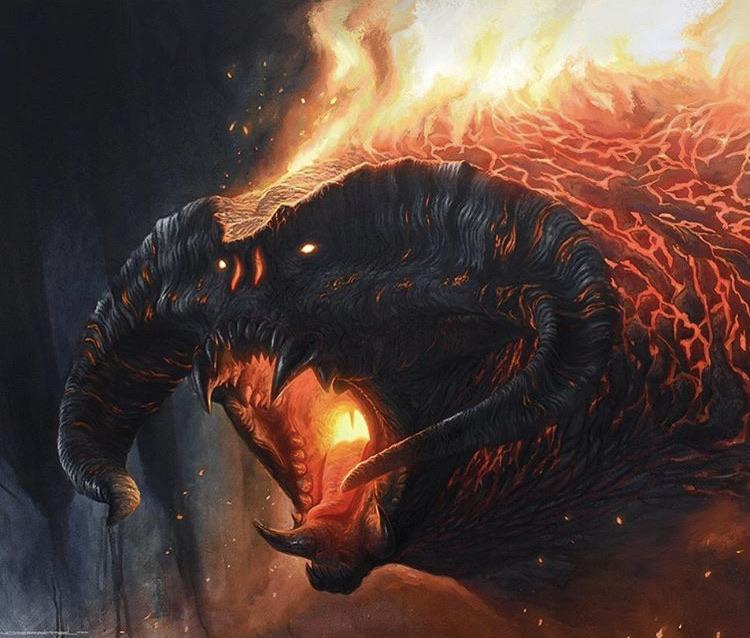
The First Clash in the Starlit Darkness
In the absence of sun and moon, the first great battle of Middle-earth unfolded beneath the stars. The Noldorin host launched a swift and fierce attack upon Morgoth’s scattered forces, gaining momentum through surprise and superior skill. Victory appeared within reach as enemy ranks fell under well-coordinated strikes. But the triumph was incomplete. Fueled by a desire to end the conflict quickly, their leader pushed ahead toward Angband, Morgoth’s stronghold, with only a small guard. It was a reckless move, made in defiance of counsel and caution. At the edge of the enemy’s shadowed domain, Fëanor was confronted by a terror that no Elf had yet faced.
Waiting in the dark were the Balrogs, spirits of fire and shadow, led by their captain Gothmog. A brutal encounter followed, where even unmatched valor could not overcome overwhelming odds. Though he fought with fierce brilliance, Fëanor was struck down by Gothmog, his wounds beyond healing. His sons arrived too late to aid him, only in time to hear their father’s final words. With his last breath, Fëanor cursed Morgoth three times, bitter that the Silmarils remained in enemy hands. He died unfulfilled, consumed not only by fire but by the grief of his own creations lost to darkness.
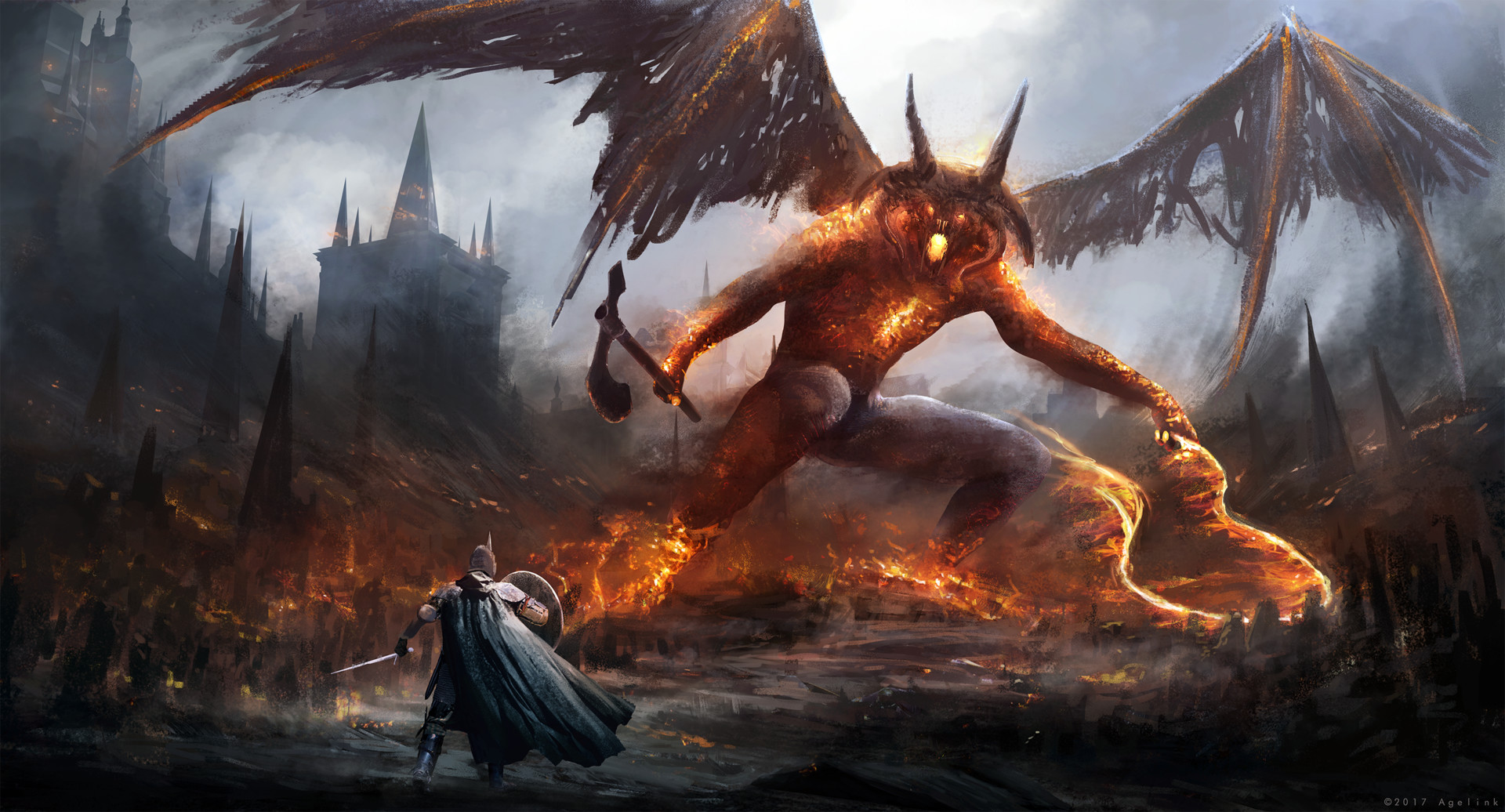
Bound by Blood and Words
The binding words spoken in Aman did not end with their father’s death; they lived on through the actions of his seven sons. The Oath they swore to reclaim the Silmarils from any who held them became a driving force behind their decisions and fractured allegiances. Each son took territory in East Beleriand, establishing strongholds to secure influence and watch for any sign of the lost jewels. Though powerful in presence and position, their unity was constantly strained. Fëanor’s legacy burned in each of them, but instead of strengthening their bond, it became a burden that invited suspicion, isolation, and bitter pride among the brothers.
As time passed, the Oath revealed itself not as a noble vow but a consuming curse. The sons committed acts that mirrored their father’s extremes, including two more Kinslayings—terrible assaults on fellow Elves who stood between them and their goal. These betrayals severed alliances and eroded trust, even among those who once viewed them as heroes. None of the brothers could abandon the promise, not even when it demanded the unthinkable. The Silmarils, distant and increasingly inaccessible, were no longer just objects of desire—they became symbols of bondage. Fëanor had forged the Oath with passion, but his sons bore its ruinous weight.
Echoes of Rebellion Through an Age
The defiance against the Valar shattered a long-standing harmony between the Noldor and their divine guardians. What began as a personal vendetta turned into a mass exodus fueled by pride, grief, and persuasion. The decision to leave Aman and challenge the will of the Valar opened a new chapter in Elven history—one marked by sorrow and fading glory. Acts such as the Kinslaying at Alqualondë, previously unthinkable among the Elves, tore the fabric of their unity. Fëanor’s bold rejection of divine authority created a dangerous precedent, one where mistrust and vengeance overruled wisdom, dividing a once-powerful people at the dawn of their greatest trials.
As the First Age progressed, the choices made in those early days continued to shape its course. The bitterness that followed the burning of the ships and the betrayal among kin undermined potential alliances and weakened their cause against darker threats. Even among those who sought justice or survival, the shadow of Fëanor’s decisions lingered. His legacy, while rooted in brilliance and strength, came to embody the price of unchecked will. For the Noldor, each victory felt temporary, every defeat more tragic. The First Age became not only a tale of struggle against darkness, but also a reckoning with Fëanor’s far-reaching impact.
How useful was this post?
Click on a star to rate it!
Average rating / 5. Vote count:
No votes so far! Be the first to rate this post.
Author
-
Meet Dr. Kendall Gregory, a highly accomplished professional with a remarkable academic background and a deep passion for empowering individuals through knowledge. Dr. Gregory’s educational journey began with a Bachelor of Science degree, followed by a Doctor of Chiropractic Medicine, focusing on diagnosing and treating musculoskeletal conditions. He further expanded his expertise with a Master's degree in Oriental Medicine, specializing in acupuncture and Chinese herbology, and a Master's degree in Health Care Administration, emphasizing his dedication to improving healthcare systems. Dr. Gregory combines his extensive knowledge and practical experience to provide comprehensive and integrative healthcare solutions. Through his writings, he aims to inspire individuals to take charge of their health and make informed decisions.
View all posts
